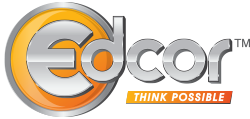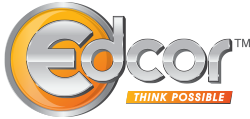While these topics have been discussed many times; in-demand skills remain just as relevant as it did one and even two years ago. It doesn’t matter whether you call them future skills, power skills, or foundational skills. Each of these labels has been applied to the most in-demand skills in today’s labor market. These in-demand skills include a range of talents and abilities, but it’s not enough for a person to be good at just communication, computers or creativity. Today, there is a need for employees to have skills from each of the skill-sets those traits represent.
Now more than ever professional development is a major concern for employers and employees. According to the World Economic Forum there are companies and manufacturers in a broad range of industries that are leading the way in adopting AI and new technologies of the Fourth Industrial Revolution. Those leaders are reaping the greatest benefits of technology, according to the report.
Adopting new technologies represents both an opportunity and a challenge for businesses and their employees. Businesses will need employees who can work with new technology. Employees will need to seek professional development to have skills that complement advanced technology.

The World Economic Forum report Beacons of Technology and Innovation in Manufacturing 2019 calls the businesses who are leading the way in the adopting technology “lighthouses.” Just as lighthouses point the way for vessels on the water, these businesses lead the way as “beacons for the world, exemplifying the type of production approach that can drive the next engine of global economic growth.”
The Burning Glass report The New Foundational Skills of the Digital Economy categorizes important skills for today and future workplaces as “human skills”, “digital building block skills” and “business enabler skills.” Each of these categories demands unique skill sets, explains the Burning Glass report which analyzes skills listed in job postings. The report calls these skill sets together “new foundational skills.”
Examples of in-demand human skills are critical thinking, creativity, communication. People who possess these skills also have collaboration and relationship building abilities. Digital building block skills are more technical, such as analyzing data, managing data and software programming. These skills are also in demand outside of technology jobs in areas such as digital security and privacy. Business enabler skills, the report says, let the other skills work together in business tasks. These include project management, digital design and communicating data.
There will always be a need for human or soft skills. Anant Agrwal is the CEO of online learning company edX and also an electrical engineering and computer science professor at MIT. As someone who works with the “hard skill” world of technology, he understands why in-demand skills include “soft skills.” He says, “The shelf life of hard skills will become shorter as technology advances more rapidly, and inputs become more automated. Soft skills, or power skills, including collaboration; communication; critical thinking; and the ability to make quick decisions from a set of information will remain essential for all employees and will also be increasingly sought out by hiring managers.”
In-demand skills for today’s labor market and the future labor market demand a range of talents and abilities. People will need both technical hard skills and human soft skills, as well as a plan for lifelong learning.
Employees that seek opportunities for professional development will be most successful as the Fourth Industrial Revolution introduces technologies into their jobs. They will be able to adapt as their jobs change, and change is inevitable. The World Economic Forum estimates automation will impact that 30 percent of the activities in 62 percent of occupations today. Workers who take responsibility for their own skills development will become the employees with skills required for future work. With professional development they will be the employees that find that technology enhances their work, rather than replaces them.
Employee professional development is the key for businesses to be able to adopt AI and new technologies that will make their businesses profitable.



